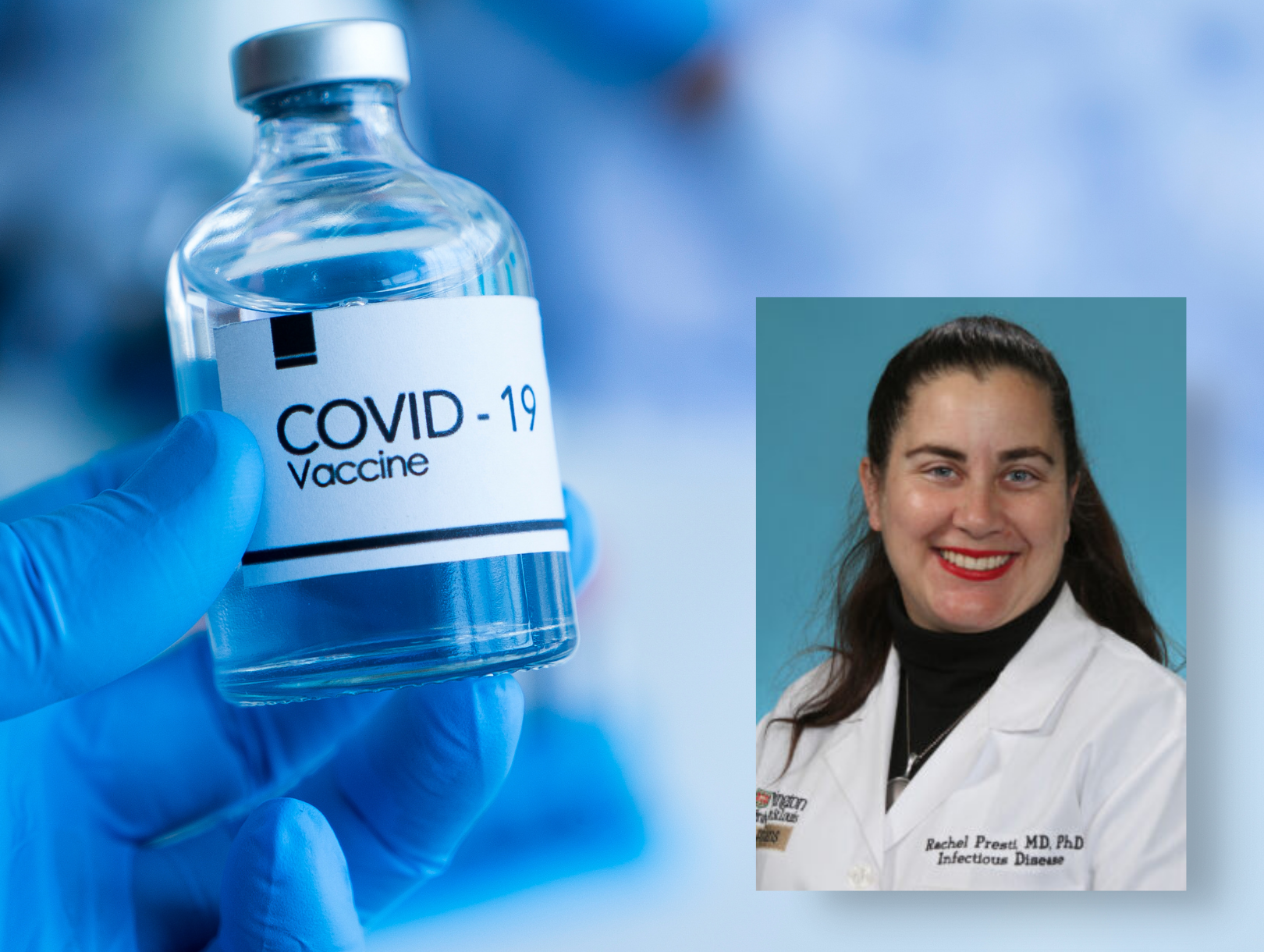
Last July, Dr. Rachel Presti ’94 made the news when she became a principal investigator on large-scale phase-3 vaccine trials that enrolled thousands of participants from around the world to determine whether newly developed vaccines could prevent COVID-19.
Now, Presti, associate professor of medicine, director of Washington University’s Infectious Disease Clinical Research Unit, and principal investigator for the AIDS Clinical Trials Group and the HIV Prevention Trials Network, is making headlines again as those vaccines roll out across the country.
“I don’t think any of us in our wildest dreams really hoped that there would be a vaccine that was 95 percent protective by the end of the year,” Presti told KDSK in November. “And so that’s really just truly amazing.”
Prior to the pandemic, Presti’s research focused on how emerging viruses contribute to the pathogenesis of HIV disease and the development of treatments to prevent and treat HIV and AIDS. That research has laid the groundwork for the emergency pivot to COVID-19 vaccine research under Operation Warp Speed, the Department of Defense’s coordinated actions intended to “accelerate the testing, supply, development, and distribution of safe and effective vaccines, therapeutics, and diagnostics to counter COVID-19 by January 2021.”
“The infrastructure that was set in place to conduct HIV/AIDS clinical trials, and which has led to tremendous successes in treatment and prevention, put us in a wonderful position to address COVID-19,” Presti explains. “ Over the past several years, we have been using this infrastructure to build clinical research, including vaccine research, as well as establish basic/translational virology and immunology partnerships that enabled us to immediately work towards establishing cohorts of patients who had gotten COVID-19, collecting data and biologic samples, and to work with our research partners to understand how the immune system might respond to COVID-19. It also gave us the infrastructure to be a part of the large phase 3 National Institutes of Health-funded clinical trials to help develop vaccines, as well as to conduct several treatment trials for COVID-19, both inpatient and outpatient.”
A well-developed infrastructure is essential to successfully performing large-scale clinical trials. However, cutting-edge science also requires a human touch and the recognition that healthcare access and outcomes are not always distributed equitably. “Working in the HIV community has taught me a lot about respecting people’s lived experiences, recognizing grit and perseverance, and working with people where they are,” Presti says.
To that end, Presti and her team are adamant about overcoming some of the barriers to healthcare access and vaccine research participation, such as “vaccine hesitancy, jobs without paid sick leave, having medical insurance, and distrust of the medical establishment. As reported by St. Louis Magazine, her team has conducted outreach to public health departments, community groups, and individual physicians in an effort to recruit more diverse trial volunteers. “It’s a continuous need to communicate, to treat people across the board with kindness and respect,” she says, adding that the confluence of COVID-19 and the rise of the Black Lives Matter movement has highlighted persistent systemic problems with race relations and healthcare disparities, and that the current rural epidemic of COVID-19 is revealing systemic healthcare and public health-infrastructure needs throughout the country.
Presti’s success as a researcher—in addition to scores of published papers over the course of her career, which includes four COVID-19-related studies and several others in the works—started early. While at Scripps, she was a dual major in biology and chemistry, and under the tutelage of Professor David Sadava, conducted summer research at University of Washington and Washington University while still an undergrad. “Scripps opened up a lot of opportunities and gave me the confidence to pursue an academic career as a physician scientist,” she says.
As the vaccine continues to be administered, Presti encourages everyone to work with the tools we have to combat COVID-19: “Get vaccinated, wear a mask, wash your hands, and socially distance.”

